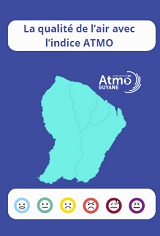Blada.com
samedi 21 février
Boîtes aux lettres
Courrier des lecteurs
Petites annonces
Emploi / Formation
Covoiturage
Infos citoyennes
Infos citoyennes
05/08/22
A l’hôpital de Kourou, une intervention qui change la vie des patients
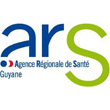 En avril, pour la première fois en Guyane, un sphincter urinaire artificiel a été posé à un patient souffrant d’incontinence. Un deuxième a été posé en mai et deux autres patients attendent le leur. Ce problème, souvent synonyme d’exclusion sociale, lui était apparu il y a trois ans. Il est généralement une conséquence d’un traitement médical ou chirurgical. Sur le territoire, une dizaine de personnes pourraient avoir besoin d’une telle intervention chaque année.
En avril, pour la première fois en Guyane, un sphincter urinaire artificiel a été posé à un patient souffrant d’incontinence. Un deuxième a été posé en mai et deux autres patients attendent le leur. Ce problème, souvent synonyme d’exclusion sociale, lui était apparu il y a trois ans. Il est généralement une conséquence d’un traitement médical ou chirurgical. Sur le territoire, une dizaine de personnes pourraient avoir besoin d’une telle intervention chaque année.
Pour ce patient guyanais d’une soixantaine d’années, ce sont trois ans de galère, trois ans avec une vie sociale très compliquée qui ont pris fin au mois de mai, suite à une intervention chirurgicale au centre hospitalier de Kourou (CHK). En mai, un deuxième patient lui a emboîté le pas. Pour la première fois en Guyane, fin avril, l’équipe d’urologie a posé un sphincter urinaire artificiel. Ce dispositif permet aux patients incontinents de contrôler le moment où ils urinent.
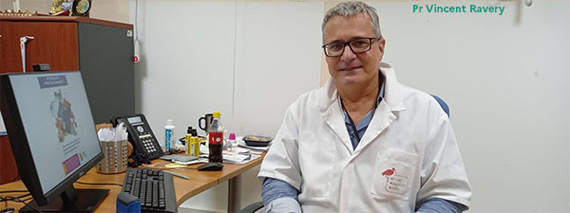
« L’incontinence urinaire est un facteur d’exclusion sociale », insiste le Pr Vincent Ravery, chef du service d’urologie au CHK. Son premier patient vivait depuis trois ans avec un sac collecteur, glissé sous les vêtements, qui stocke l’urine et qu’il faut aller vider quand il est plein. « On le connaissait depuis avant même le Covid ! Ce genre d’intervention reste rare mais rend un service important, poursuit l’urologue. Depuis l’intervention, ce patient peut mener une vie sociale normale. »
Un mois après, tout allait bien
Le Pr Ravery estime qu’une telle intervention pourrait être réalisée une fois par mois, en Guyane. « On la pratique chez des patients qui sont devenus incontinents souvent de façon iatrogène », c’est-à-dire qu’elle est la conséquence d’un traitement médical ou chirurgical. « Notre second patient s’est fait opérer dans l’Hexagone. Son incontinence s’est déclenchée après », relate le praticien. Elle peut suivre, par exemple, la prise en charge chirurgicale du cancer de la prostate. L’incontinence peut également être d’origine neurologique. D’autres patients pourraient donc avoir besoin d’une telle intervention, suite par exemple à un AVC. Un tel dispositif peut également être proposé aux femmes, "mais les indications sont plus rares, le plus souvent neurologiques" précise le Pr Ravery.
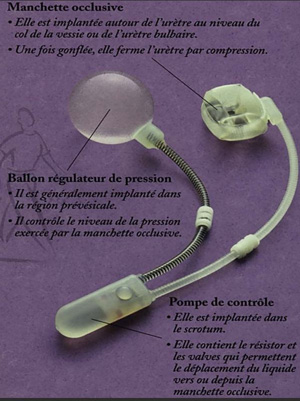 Le sphincter urinaire artificiel est composé de trois éléments, totalement invisibles pour le patient :
Le sphincter urinaire artificiel est composé de trois éléments, totalement invisibles pour le patient :
- Une manchette installée autour de l’urètre, qui maintient l’urine dans la vessie quand elle est fermée ;
- Un ballon de régulation de pression ;
- Une pompe installée dans le scrotum, que le patient va activer pour ouvrir la manchette et permettre à l’urine de s’écouler dans l’urètre.
« Le fait que ce soit en trois éléments permet de changer facilement ce qui dysfonctionne », explique le Pr Ravery.
L’opération se déroule sur trois jours d’hospitalisation, pour s’assurer qu’aucune infection ne se déclare. « C’est une opération assez complexe, qui n’est réalisée que dans une dizaine de centres de référence dans l’Hexagone, insiste le Pr Ravery. Il y a une technicité chirurgicale. Comme pour tout ce qui a trait à la pression de liquide, il y a un sujet autour de la gestion de l’air. Cela a impliqué l’équipe d’infirmiers du bloc opératoire. Un certain nombre d’entre eux avait pu se former dans l’Hexagone, auprès d’équipes qui réalisent ce type de chirurgie. » Le dispositif n’est activé qu’un mois plus tard, afin de s’assurer de la bonne cicatrisation. « On forme alors le patient à l’utilisation du dispositif. » Celui-ci peut alors retrouver une vie normale !
« Permettre un diagnostic plus précoce des pathologies urologiques »
« En Guyane, les pathologies urologiques risquent d’augmenter, prévient le Pr Vincent Ravery, chef du service d’urologie au centre hospitalier de Kourou. Le cancer de la prostate représente un tiers des cancers masculins, chez nous. » Le CHK détient une autorisation pour la chirurgie des cancers urologiques. Il a traité 44 patients en 2019.
L’urologie était l’une des huit spécialités bénéficiant d’une équipe mobile de territoire, au moment de la parution du rapport de l’Igas sur la création du CHU de Guyane. « Un des objectifs de l’organisation en réseau urologique est de permettre des diagnostics plus précoces », explique le Pr Ravery. Ancien chef du service d’urologie de l’hôpital Bichat (AP-HP), il s’est installé à Kourou il y a quatre ans qui avait découvert la Guyane en tant que volontaire à l’aide technique (VAT) et lors de quelques remplacements.
Cet article est issu de la Lettre pro de l’Agence régionale de santé. Vous pouvez vous y abonner en remplissant le formulaire suivant : https://forms.sbc28.com/5a8bed50b85b5350ef1cd117/t13M7zUZQi2XMq5E3DdnhQ/0WQoeDwjRXqJblCpKbLDzA/form.html
 In April, for the first time in French Guiana, an artificial urinary sphincter was placed in a patient suffering from incontinence. A second was placed in May and two other patients are awaiting theirs. This problem, often synonymous with social exclusion, appeared to him three years ago. It is usually a consequence of medical or surgical treatment. On the territory, a dozen people could need such an intervention each year.
In April, for the first time in French Guiana, an artificial urinary sphincter was placed in a patient suffering from incontinence. A second was placed in May and two other patients are awaiting theirs. This problem, often synonymous with social exclusion, appeared to him three years ago. It is usually a consequence of medical or surgical treatment. On the territory, a dozen people could need such an intervention each year.
For this Guyanese patient in his sixties, it was three years of hardship, three years with a very complicated social life that ended in May, following surgery at the Kourou hospital center (CHK). In May, a second patient followed suit. For the first time in French Guiana, at the end of April, the urology team fitted an artificial urinary sphincter. This device allows incontinent patients to control when they urinate.

"Urinary incontinence is a factor of social exclusion", insists Professor Vincent Ravery, head of the urology department at the CHK. His first patient had been living for three years with a collection bag, slipped under clothing, which stores urine and must be emptied when it is full. “We had known him since even before the Covid! This kind of intervention remains rare but provides an important service, continues the urologist. Since the intervention, this patient can lead a normal social life."
A month later everything was fine.
Professor Ravery estimates that such an intervention could be carried out once a month, in French Guiana. “It is practiced in patients who have become incontinent often iatrogenically”, that is to say that it is the consequence of medical or surgical treatment. “Our second patient had surgery in France. His incontinence started afterwards, ”says the practitioner. It can follow, for example, the surgical management of prostate cancer. Incontinence can also be of neurological origin. Other patients may therefore need such an intervention, for example following a stroke. Such a device can also be offered to women, "but the indications are rarer, most often neurological" specifies Professor Ravery.
 The artificial urinary sphincter is made up of three elements, completely invisible to the patient:
The artificial urinary sphincter is made up of three elements, completely invisible to the patient:
- A cuff fitted around the urethra, which keeps urine in the bladder when it is closed;
- A pressure regulating balloon;
- A pump installed in the scrotum, which the patient will activate to open the cuff and allow urine to flow into the urethra.
“The fact that it is in three elements makes it easy to change what is malfunctioning,” explains Professor Ravery.
The operation takes place over three days of hospitalization, to ensure that no infection occurs. “It is a fairly complex operation, which is only carried out in about ten reference centers in France, insists Professor Ravery. There is a surgical technique. As with all things fluid pressure, there is a topic around air management. This involved the team of nurses in the operating room. A number of them had been able to train in France, with teams that perform this type of surgery. The device is not activated until a month later, to ensure proper healing. “The patient is then trained in the use of the device. He can then return to a normal life!
"Allowing earlier diagnosis of urological pathologies"
“In French Guiana, urological pathologies are likely to increase, warns Professor Vincent Ravery, head of the urology department at the Kourou hospital center. Prostate cancer represents a third of male cancers in our country. The CHK holds an authorization for surgery for urological cancers. It treated 44 patients in 2019.
Urology was one of the eight specialties benefiting from a territorial mobile team, at the time of the publication of the Igas report on the creation of the CHU of French Guiana. "One of the objectives of the organization into a urological network is to allow earlier diagnoses", explains Professor Ravery. Former head of the urology department at Bichat Hospital (AP-HP), he moved to Kourou four years ago after discovering French Guiana as a technical assistance volunteer (VAT) and during some replacements.
This article is from the Regional Health Agency's Newsletter. You can subscribe by filling out the following form: https://forms.sbc28.com/5a8bed50b85b5350ef1cd117/t13M7zUZQi2XMq5E3DdnhQ/0WQoeDwjRXqJblCpKbLDzA/form.html
Raccourcis


passer une petite annonce

passer une annonce de covoiturage


passer une annonce d’emploi





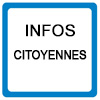

associations, postez vos actualités

participez au courrier des lecteurs
La Guyane c’est ici
La qualité de l’Air avec
ATMO
Photothèque

Lancements 2022
Vol 259 Ariane 5



